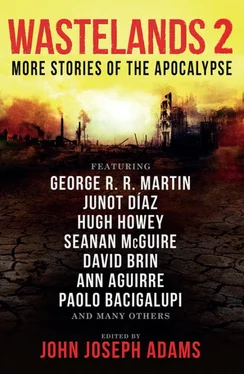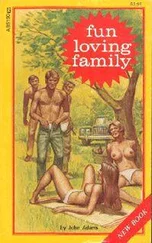That sort of thing went on all night, as they jousted back and forth, and everybody else sat around laughing. Well, actually we did more than laugh. Generally we had to help Winters with his songs, since he didn’t really know any of them all the way through. Keith held his own without us, of course.
It was one of the more memorable sessions. The only thing it really had in common with Keith’s usual concerts was that it began with “They Call the Wind Maria,” and ended with “Me and Bobby McGee.”
But the next day, Keith was more subdued. Still some kidding around between him and Winters, but mostly the singing slipped back into the older pattern. And the day after, the songs were nearly all Keith’s kind of stuff, except for a few requests from Winters, which Keith did weakly and halfheartedly.
I doubt that Winters realized what was happening. But I did, and so did most of the others. We’d seen it before. Keith was getting down again. The afterglow from his latest timetrip was fading. He was getting lonely and hungry and restless. He was itching, yet again, for his Sandi.
Sometimes, when he got that way, you could almost see the hurt. And if you couldn’t see it, you could hear it when he sang. Loud and throbbing in every note.
Winters heard it too. He’d have had to be deaf to miss it. Only I don’t think he understood what he heard, and I know he didn’t understand Keith. All he knew was the anguish he heard. And it troubled him.
So, being Winters, he decided to do something about it. He came to Keith.
I was there at the time. It was midmorning, and Keith and I had come in from the field for a break. I was sitting on the well with a cup of water in my hand, and Keith was standing next to me talking. You could tell that he was getting ready to timetrip again, soon.
He was very down, very distant, and I was having trouble reaching him.
In the middle of all this, Winters comes striding up, smiling, in his Army jacket. His house was rising quickly, and he was cheerful about it, and he and Crazy Harry had already mapped out the first of their “search expeditions.”
“Hello, men,” he said when he joined us at the well. He reached for the water, and I passed my cup.
He took a deep drink and passed it back. Then he looked at Keith. “I enjoy your singing,” he said. “I think everybody else does, too. You’re very good, really.” He grinned. “Even if you are an anarchistic bastard.”
Keith nodded. “Yeah, thanks,” he said. He was in no mood for fooling around.
“One thing, though, has been bothering me,” Winters said. “I figured maybe I could discuss it with you, maybe make a few suggestions. Okay?”
Keith stroked his beard and paid a little more attention. “Okay. Shoot, Colonel.”
“It’s your songs. I’ve noticed that most of them are pretty… down, let’s say. Good songs, sure. But sort of depressing, if you know what I mean. Especially in view of the Blast. You sing too much about the old days, and things we’ve lost. I don’t think that’s good for morale. We’ve got to stop dwelling so much on the past if we’re ever going to rebuild.”
Keith stared at him, and slumped against the well. “You gotta be kidding,” he said.
“No,” said Winters. “No, I mean it. A few cheerful songs would do a lot for us. Life can still be good and worthwhile if we work at it. You should tell us that in your music. Concentrate on the things we still have. We need hope and courage. Give them to us.”
But Keith wasn’t buying it. He stroked his beard, and smiled, and finally shook his head. “No, Lieutenant, no way. It doesn’t work like that. I don’t sing propaganda, even if it’s well-meant. I sing what I feel.”
His voice was baffled. “Cheerful songs, well… no. I can’t. They don’t work, not for me. I’d like to believe it, but I can’t, you see. And I can’t make other people believe if I don’t. Life is pretty empty around here, the way I see it. And not too likely to improve. And… well, as long as I see it that way, I’ve got to sing it that way. You see?”
Winters frowned. “Things aren’t that hopeless,” he said. “And even if they were, we can’t admit it, or we’re finished.”
Keith looked at Winters, at me, then down into the well. He shook his head again, and straightened. “No,” he said simply, gently, sadly. And he left us at the well to stalk silently in the fields.
Winters watched him go, then turned to me. I offered him more water, but he shook his head. “What do you think, Gary?” he said. “Did I have a point? Or didn’t I?”
I considered the question, and the asker. Winters sounded very troubled and very sincere. And the blond stubble on his chin made it clear that he was trying his best to fit in. I decided to trust him, a little.
“Yes,” I said. “I know what you were driving at. But it’s not that easy. Keith’s songs aren’t just songs. They mean things to him.”
I hesitated, then continued. “Look, the Blast was hell for everybody, I don’t have to tell you that. But most of us out here, we chose this kind of life, ’cause we wanted to get away from the cities and what they stood for. We miss the old days, sure. We’ve lost people, and things we valued, and a lot that made life joyful. And we don’t much care for the constant struggle, or for having to live in fear of the rat packs. Still, a lot of what we valued is right here on the commune, and it hasn’t changed that much. We’ve got the land, and the trees, and each other. And freedom of a sort. No pollution, no competition, no hatred. We like to remember the old days, and the good things in the cities—that’s why we like Keith’s singing—but now has its satisfactions too.
“Only, Keith is different. He didn’t choose this way, he was only visiting. His dreams were all tied up with the cities, with poetry and music and people and noise. And he’s lost his world; everything he did and wanted to do is gone. And… and well, there was this girl. Sandra, but he called her Sandi. She and Keith lived together for two years, traveled together, did everything together. They only split for a summer, so she could go back to college. Then they were going to join up again. You understand?”
Winters understood. “And then the Blast?”
“And then the Blast. Keith was here, in the middle of nowhere. Sandi was in New York City. So he lost her, too. I think sometimes that if Sandi had been with him, he’d have gotten over the rest. She was the most important part of the world he lost, the world they shared together. With her here, they could have shared a new world and found new beauties and new songs to sing. But she wasn’t here, and…”
I shrugged.
“Yeah,” said Winters solemnly. “But it’s been four years, Gary. I lost a lot too, including my wife. But I got over it. Sooner or later, mourning has to stop.”
“Yes,” I said. “For you, and for me. I haven’t lost that much, and you… you think that things will be good again. Keith doesn’t. Maybe things were too good for him in the old days. Or maybe he’s just too romantic for his own good. Or maybe he loved harder than we did. All I know is that his dream tomorrow is like his yesterday, and mine isn’t. I’ve never found anything I could be that happy with. Keith did, or thinks he did. Same difference. He wants it back.”
I drank some more water, and rose. “I’ve got to get back to work,” I said quickly, before Winters could continue the conversation. But I was thoughtful as I walked back to the fields.
There was, of course, one thing I hadn’t told Winters, one important thing. The timetripping. Maybe if Keith was forced to settle for the life he had, he’d come out of it. Like the rest of us had done.
Читать дальше












